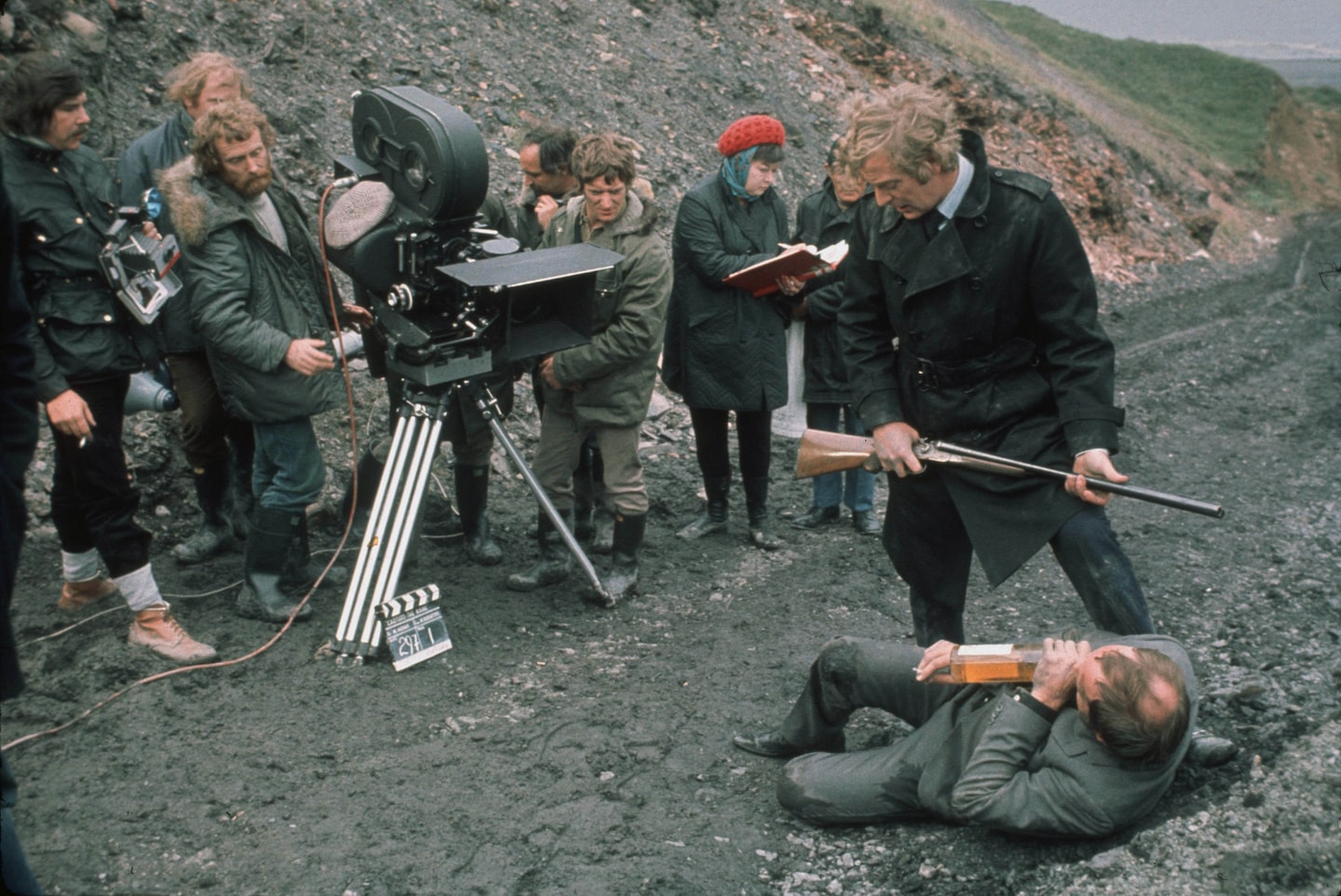The cause was congestive heart failure, said his friend and collaborator Mike Kaplan, a film producer and marketing strategist.
Mr. Hodges was a master of the crime film, a genre that gave him the freedom to perform “an autopsy on society’s ills,” as he put it, while examining characters who attained money and power through manipulation, exploitation or the explosive force of a double-barreled shotgun.
“His thrillers are distinctively unsettling: they’re as somber and as menacing as ghost stories,” film critic Terrence Rafferty once wrote in the New York Times, “and their effects are as hard to shake.”
Unlike the ruthless, gun-toting men who populated so many of his films, Mr. Hodges was by all accounts gentle, soft-spoken and consistently good-humored, even when his movies flopped at the box office or were never released to theaters in the first place.
“He always said his films were like messages in a bottle that you’d throw into the sea,” Kaplan said in a phone interview. “And then they’d pop up somewhere, in Japan or the U.S., and people would finally see them.”
Mr. Hodges, who was also a playwright and novelist, wrote many of his own films, beginning with his 1971 debut, “Get Carter,” based on Ted Lewis’s novel “Jack’s Return Home.” Shot on location in Newcastle upon Tyne, the movie followed gangster Jack Carter (played by Michael Caine), who returns to his hometown in northeastern England to investigate the death of his brother.
The film shocked critics with its naturalistic scenes of violence, with Caine portraying Carter as a remorseless criminal who — unlike a more traditional movie gangster — was neither stupid nor funny. Pauline Kael of the New Yorker declared that the film was “so calculatedly cool and soulless and nastily erotic that it seems to belong to a new genre of virtuoso viciousness.”
The movie was later praised by directors including Guy Ritchie, Quentin Tarantino and Edgar Wright, and in 2004 it was ranked the greatest British movie of all time by Total Film magazine. It also inspired a poorly received Hollywood remake starring Sylvester Stallone, released in 2000 without the involvement of Mr. Hodges.
Mr. Hodges reunited with Caine for his follow-up, the black comedy “Pulp” (1972), which reworked noir tropes while telling the story of a hard-boiled novelist hired to ghostwrite the autobiography of a mob-connected movie star (Mickey Rooney).
His later films included the Michael Crichton adaptation “The Terminal Man” (1974), which went unreleased in British theaters but drew the admiration of directors Stanley Kubrick and Terrence Malick, and “Flash Gordon” (1980), a comic strip extravaganza that starred Sam J. Jones as the heroic title character and Max von Sydow as the villainous Ming the Merciless.
Produced by Dino De Laurentiis, who hired Mr. Hodges to replace director Nicolas Roeg, “Flash Gordon” featured music by the rock band Queen and was a modest box office success in Britain, despite the fact that Mr. Hodges went into the film having “no idea what I was going to do.”
He settled on a tongue-in-cheek approach that went against De Laurentiis’s vision for a sincere sci-fi and fantasy franchise, and said he had to order his crew not to laugh while watching footage during the producer’s visits to the set.
Soon after the movie came out, Mr. Hodges’s first marriage collapsed, and his health faltered. He became “seriously ill,” he said, and found himself “at rock bottom” after his marriage to Jean Alexandrov ended in divorce.
It would be nearly two decades before he returned to prominence as a filmmaker, following the release of thrillers including “A Prayer for the Dying” (1987), which he disowned after it was re-cut by the studio, and “Black Rainbow” (1989), which was critically acclaimed but never got a full theatrical release in Britain or the United States.
In part, his declining fortunes were self-inflicted, according to his friend Malcolm McDowell, the star of Kubrick’s “A Clockwork Orange.” “Mike doesn’t like compromising very much,” McDowell told the Guardian in 2003. “Now that’s a great strength as I see it, but it doesn’t help when you’re trying to work within the studio system.”
After Mr. Hodges’s neo-noir film “Croupier” (1998) died at the British box office, he believed his career was over, and decided he would shift his focus from making movies to growing vegetables and baking bread. But the movie received widespread acclaim in the United States and helped elevate actor Clive Owen to stardom, portraying a casino worker struggling to write a novel. “Croupier” got a second life, returning to theaters in Britain.
Writing in the New York Observer in 2000, film critic Andrew Sarris proclaimed Mr. Hodges “one of the most underappreciated and virtually unknown masters of the medium over the last 30 years,” noting his “exquisite craftsmanship.”
Mr. Hodges went back to work, making one last crime thriller — “I’ll Sleep When I’m Dead” (2003), starring Owen as a Carter-like character looking into his brother’s suicide.
Michael Tommy Hodges was born in Bristol, England, on July 29, 1932, and grew up in Salisbury, frequenting the city’s three movie houses to watch films by Billy Wilder and Elia Kazan. His father was a cigarette salesman, his mother a homemaker, and his parents instilled a conservative worldview in their young son, sending him to a Catholic boarding school in Bath and encouraging him to become an accountant.
For his compulsory national service, Mr. Hodges joined the Royal Navy, serving aboard a minesweeper that traveled between poor fishing communities along the British coastline. The experience left him transformed.
“For two years, my middle-class eyes were forced to witness horrendous poverty and deprivation that I was previously unaware of,” he recalled this year in a letter to the Guardian. “I went into the navy as a newly qualified chartered accountant and complacent young Tory, and came out an angry, radical young man.”
Mr. Hodges went into television, working as a scriptwriter and then a director for the public affairs series “World in Action.” After directing feature-length thrillers for the anthology series “ITV Playhouse,” he was hired in 1970 to make “Get Carter.” He later signed up for paycheck jobs that included an uncredited stint directing “Damien: Omen II” (1978).
As he told it, he left the horror film after one of the producers pulled out a handgun during an argument about the design budget. “I needed the money, and the whole thing was a disaster,” he recalled. “The gun was incidental.”
He later directed “Squaring the Circle” (1984), a TV movie about Polish dissident Lech Walesa, from a script by Tom Stoppard; the science fiction satire “Morons From Outer Space” (1985); and the documentary “Murder by Numbers” (2004), which examined the history of serial killer films. In recent years he was working on “All at Sea,” a documentary about his life.
Survivors include his wife, Carol Laws, whom he married in 2004; two sons from his first marriage, Ben and Jake Hodges; and five grandchildren.
Long after the release of “Get Carter,” Mr. Hodges was still marveling at the film’s success, as well as its speedy production process. The movie took 45 days to shoot and came out the year after he was hired to direct.
“I thought filmmaking was always going to be like that: decisions quickly taken and quickly acted on, instinct always in the driving seat,” he said in an interview with British writer Maxim Jakubowski. “Nine feature films over the next forty years shows how wrong I was. Keeping instinct alive in an industry run largely by committees of incompetent and frightened executives is no easy matter.”



